The City of Port Phillip is the best part of Melbourne (in our humble opinion). Our beachside suburbs, parks, and laid-back neighbourhoods make our city one of the most liveable in Australia. But climate change is affecting our way of life. The probability of bushfires, rising sea levels and flooding threaten our City, our country and our way of life.
How can council contribute to reducing carbon emissions?
Council certainly has a role to play in reducing carbon emissions, but council itself is only responsible for <1% of emissions in the City of Port Phillip. To council’s credit, they are expected to achieve zero net emissions in 2020/21, a fantastic outcome.
Councils can play a small role in helping us all reduce our climate footprint through education and encouragement. However, the big changes needed, like less carbon-intensive energy sources and cleaner modes of transport, can only be meaningfully addressed by state and federal governments. We want our Council to deliver cost-effective, measured actions on climate change. Not write yet more reports nor run ineffective programs.
What is the biggest impact council can have for a sustainable future?
The City of Port Phillip is surrounded by councils that provide food waste and green waste bin services. Port Phillip sends over 70% of waste to landfill[1], whereas the average Victorian council saves 50% more waste from landfill than Port Phillip.

Why hasn’t council provided green and food waste bins to residents in the past?
The option to introduce a green and food waste bins was considered by council in 2018[2] but rejected because it “was found to be extremely expensive due to high set up costs, and would only meet the needs of half of our community.” This decision by our council to deny residents green/food waste bin services has resulted in an extra 8,000[3] tonnes of waste going to landfill per year.
Council is trialling FOGO (food organics and garden organics) waste bins, only after the Victorian government mandated these bins to be rolled out by 2030 (‘Recycling Victoria, a new economy’).
Other councils have had these bins for many years and they are highly effective at reducing waste sent to landfill. For a council that has declared a ‘climate emergency’, it is very contradictory that this important sustainability measure was not introduced earlier and even now, it will not be fully implemented for some time yet.
Is the new waste & amenity levy the best response to the Victorian Government mandate?
RoPP is against Council increasing the financial burden on the community. Council ought to be able to fund essential services, like food and green waste, without resorting to a new tax – one that will increase the total amount of rates & charges collected by our Council.
Port Phillip’s current level of services are substandard and do not meet community expectations, as green and food waste bins are long overdue. Council must prioritise spending or find efficiencies to deliver these basic services. Now. Why can’t this Council get the basics right?
Instead, Council’s plan for a “waste & amenity” levy is a double-dip tax, a cynical way to collect yet more funds from us all, under the guise of the waste crisis, which council themselves have contributed to.
When you are voting in the October election, ask yourself:
- Is it acceptable that existing Councillors, who are mostly Labor party and Greens party endorsed, have not already introduced green and food waste services?
- Will this candidate vote for a new tax (waste & amenity levy), over and above existing rates & charges?
- Will this candidate finally bring in food and green waste collection- with no increase to the total amount of rates & charges collected from residents and ratepayers?
- Will this candidate support trialling new services and writing long strategy reports, or just get on with it? There’s no need to reinvent the wheel, just do what other Councils have been doing for years!
[1] https://knowyourcouncil.vic.gov.au/councils/port-phillip/reports/waste-collection
[2] Council meeting 17 October 2018, item 11.1 (http://www.portphillip.vic.gov.au/Minutes%20Ordinary%20Council%2017%20October%202018.pdf)
[3] 21,000 tonnes of garbage per year. 38% is organic and green. Source: http://www.portphillip.vic.gov.au/default/WasteManagementOperationsDocuments/WM_ Waste_Recycling_A4_6PP_0317_PROOF5_Spreads.pdf
Snap poll – Is green waste collection important to you?

Recent Comments